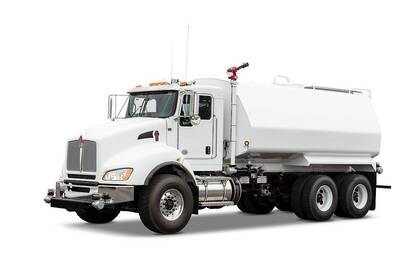Does the hauler have a Public Utilities Certificate?If you are buying water in bulk, delivered by a tank truck, be sure to know its source. Water tankers that look clean and shiny on the outside could be harboring rust, decay, pathogens, or contaminants on the inside. Water tankers that look clean and shiny on the outside could be harboring rust, decay, pathogens, or contaminants on the inside. To legally be a commercial water hauler, a truck owner must have a Public Utilities Certificate (PUC). A PUC still does not guarantee that the water comes from a clean source or is carried in a clean container. Haulers may, at their own expense, certify their tanks for safe water hauling. According to the HDOH Safe Drinking Water Branch,(39) state regulations require HDOH to ensure that truckers hauling water to a public water system meet procedures or standards specified by the department. Water haulers transporting water to private homes are not subject to such health procedures or standards. When shopping for a water hauler, ask whether the hauler is currently approved by the HDOH, because some truckers hauling water to private businesses such as restaurants are also approved by the department. HDOH approval provides the following assurances: (1) that the tank is used only to transport water or food products and not petroleum products or chemicals, (2) that the tank has been tested for coliform and bacteria contamination, (3) that a visual inspection has been conducted to provide confirmation that the water tank is sealed and that the water will not be contaminated during transportation. This approval is valid for one year. Some water haulers are in business to carry water for toilet and other non-potable uses. They have no reason to get HDOH approval. Their prices could be much cheaper than other haulers who do comply with HDOH standards, so be wary of “cheap” rates. Be sure you are not getting water from a container that normally carries non-potable water. Don’t be afraid to ask questions of your water hauler. Avoid giving up quality for a discounted price. Does the hauler have a Public Utilities Certificate? Where does the water come from? What is the tank made of? Does the cover have a gasket seal to prevent contamination from entering? Do the output hoses have covers on both ends and are they sealed between use? Has the tank ever carried anything other than water? How often is the tank cleaned, and how is the cleaning done? Often during droughts, there are not enough haulers to meet the demand. Just about anyone who can carry water can find desperate people to sell water to. Plan ahead before a drought hits and find a hauler you trust. Call before your water gets too low, so if you need to wait for the delivery, you can do so. Every time the rains let up, keep an eye on the levels in your tank. Follow the link below
0 Comments
Leave a Reply. |
